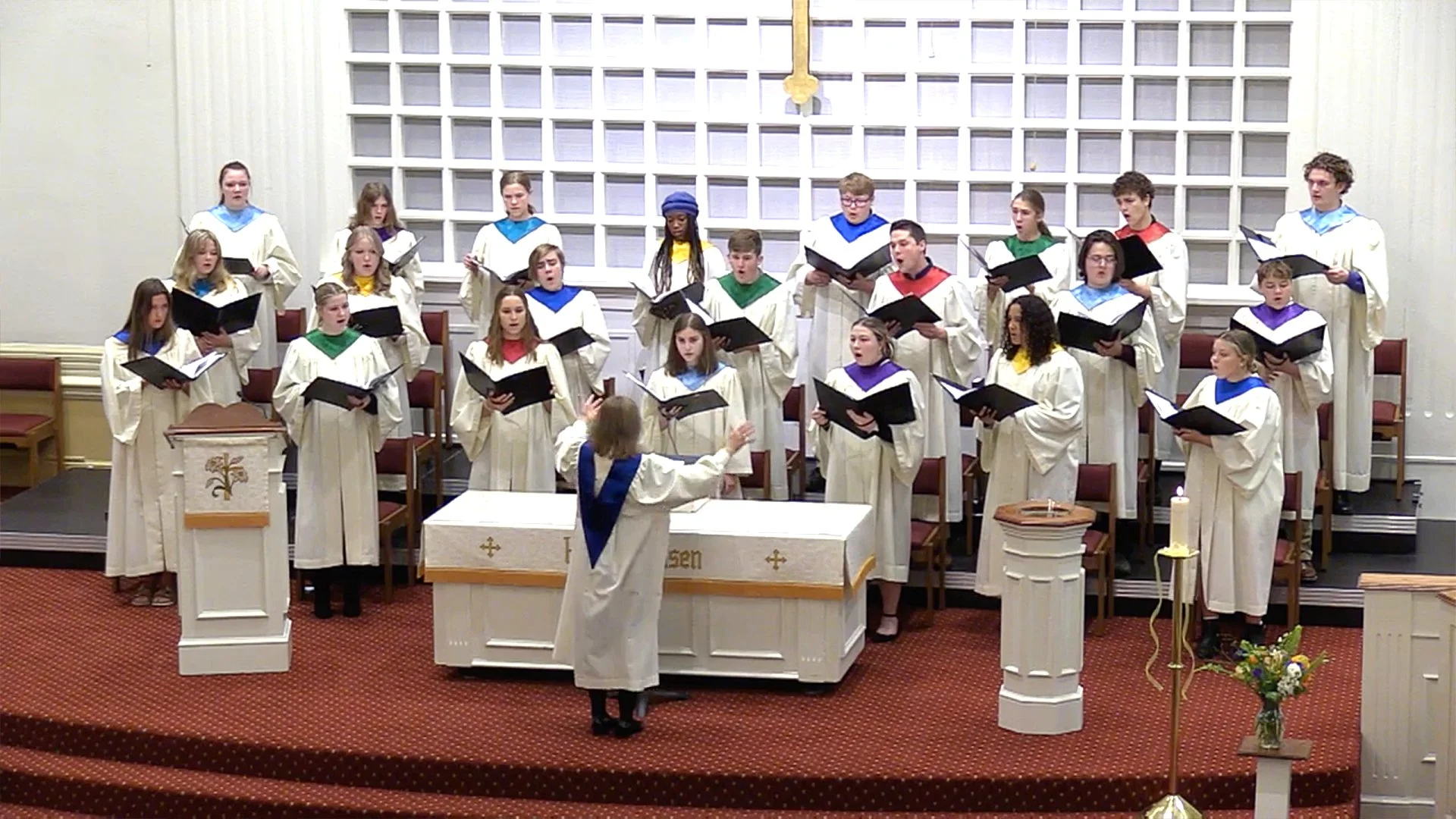Hymn of the Week: August 28, 2023
Jesus, Thou Joy of Loving Hearts
Glory to God: 494
Text: Bernard of Clairvaux Latin 12th century
Translated by Ray Palmer 1858
Jesus, thou joy of loving hearts,
thou fount of life, thou light of all,
from the best bliss that earth imparts
we turn, unfilled, to heed thy call.
Thy truth unchanged hath ever stood;
thou savest those that on thee call;
to them that seek thee thou art good,
to them that find thee, all in all.
We taste thee, O thou living bread,
and long to feast upon thee still;
we drink of thee, the fountainhead,
and thirst our souls from thee to fill.
Our restless spirits yearn for thee,
where'er our changeful lot is cast,
glad when thy gracious smile we see,
blest when our faith can hold thee fast.
O Jesus, ever with us stay;
make all our moments calm and bright.
O chase the night of sin away;
shed o'er the world thy holy light.
Today’s Devotion:
This week's hymn takes us back to the Middle Ages. Enjoy this brief biography of Bernard of Clairvaux, the supposed writer of this text.
Bernard of Clairvaux
saint, abbot, and doctor fills one of the most conspicuous positions in the history of the Middle Ages. His father, Tecelin, or Tesselin, a knight of great bravery, was the friend and vassal of the Duke of Burgundy. Bernard was born at his father's castle on the eminence of Les Fontaines, near Dijon, in Burgundy, in 1091.
He was educated at Chatillon, where he was distinguished for his studious and meditative habits. The world, it would be thought, would have had overpowering attractions for a youth who, like Bernard, had all the advantages that high birth, great personal beauty, graceful manners, and irresistible influence could give, but, strengthened in the resolve by night visions of his mother (who had died in 1105), he chose a life of asceticism, and became a monk. In the company of an uncle and two of his brothers, who had been won over by his entreaties, he entered the monastery of Citeaux, the first Cistercian foundation, in 1113. Two years later he was sent forth, at the head of twelve monks, from the rapidly increasing and overcrowded abbey, to found a daughter institution, which in spite of difficulties and privations that would have daunted less determined men, they succeeded in doing, in the Valley of Wormwood, about four miles from the Abbey of LaFerté—itself an earlier swarm from the same parent hive—on the Aube. On the death of Pope Honorius II, in 1130, the Sacred College was rent by factions, one of which elected Gregory of St. Angelo, who took the title of Innocent II, while another elected Peter Leonis, under that of Anacletua II. Innocent fled to France, and the question as to whom the allegiance of the King, Louie VI., and the French bishops was due was left by them for Bernard to decide. At a council held at Etampes, Bernard gave judgment in favor of Innocent. Throwing himself into the question with all the ardour of a vehement partisan, he won over both Henry I., the English king, and Lothair, the German emperor, to support the same cause, and then, in 1133, accompanied Innocent II., who was supported by Lothair and his army, to Italy and to Rome. When Lothair withdrew, Innocent retired to Pisa, and Bernard for a while to his abbey of Clairvaux.
From. -John Julian, Dictionary of Hymnology (1907).
Biography of Ray Palmer
Here is a brief biography of Ray Palmer, who translated the text in 1858.
Ray Palmer (b. Little Compton, RI, 1808; d. Newark, NJ, 1887) is often considered to be one of America's best nineteenth-century hymn writers. After completing grammar school, he worked in a Boston dry goods store, but a religious awakening prodded him to study for the ministry. He attended Yale College (supporting himself by teaching) and was ordained in 1835.
A pastor in Congregational churches in Bath, Maine (1835-1850), and Albany, New York (1850-1865), he also served as secretary of the American Congregational Union (1865-1878). Palmer was a popular preacher and author, writing original poetry as well as translating hymns.
He published several volumes of poetry and hymns, including Sabbath Hymn Book (1858), Hymns and Sacred Pieces (1865), and Hymns of My Holy Hours (1868). His complete poetical works were published in 1876.







